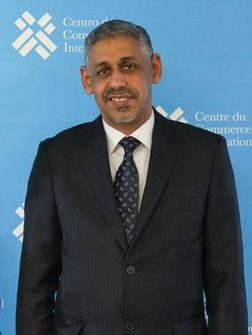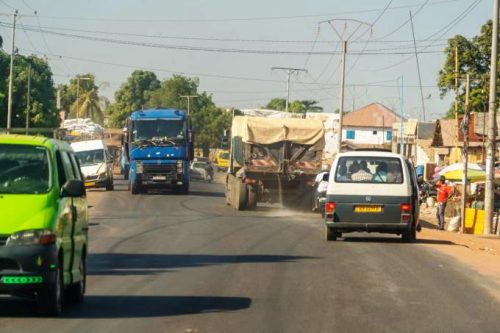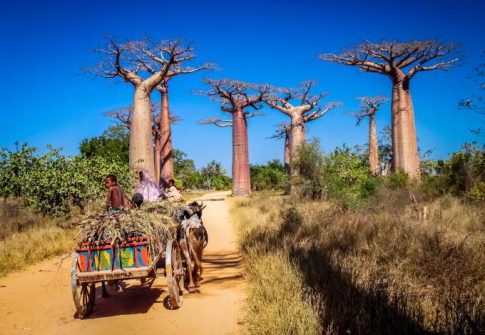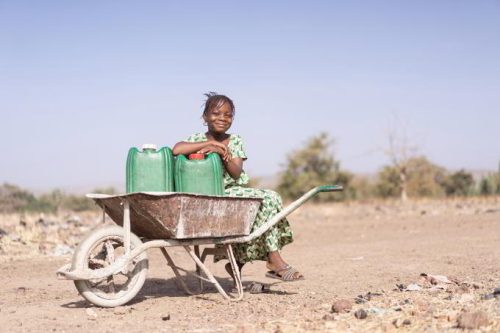African Development Bank. New Leadership, Old Problems.

International crises, failed trade integration and governance problems: these are the main challenges that await the new leadership of the AfDB. With the planned 2063 agenda, courageous choices are needed not to betray the expectations of the continent.
The African Development Bank (AfDB) has a new president, once again from West Africa: Sidi Ould Tah, former Mauritanian minister of economic affairs and finance.The AfDB website stresses that the institution must accelerate to achieve Africa’s Agenda 2063 and the Sustainable Development Goals. The AfDB’s five strategic priorities are: to light and power Africa, to feed it, to industrialise it, to integrate it and to improve the quality of life of Africans.

Sidi Ould Tah, the new president of the African Development Bank (AfDB). Photo Badea
The bank has been operating since 1964. We often forget that the institution is part of a group that also includes the African Development Fund and the Nigeria Trust Fund. All African countries and 27 non-African countries participate in the capital of the bank. African members hold 60% of the shares. The main African shareholders are Nigeria, Egypt, Algeria, South Africa and Morocco. In Europe, the largest shareholders are Germany, France and Italy. Kuwait, Turkey and Saudi Arabia are the main Middle Eastern investors. The United States and Canada lead American participation, while Japan leads
Asian participation.
What to expect from the new leadership
Firstly, the new leader must take into account the changes in global political and economic balances. Events in the Democratic Republic of Congo, the Sahel, Israel, Ukraine and Iran will have repercussions on Africa, causing oil and food prices to rise due to disruptions in global supply chains. The bank finances infrastructure projects, and oil is a major cost. This will require larger loans or longer repayment periods. Which countries will be given priority to mitigate these global crises? Closely linked is the issue of tariffs. One of the AfDB’s five priorities is African integration. Trade is among the main drivers of integration, as the example of the European Union shows.

African countries should reduce tariffs to boost mutual trade. 123rf
Solidarity must start at home. African countries should reduce tariffs to boost mutual trade and abandon nationalism and deep ties with former colonial powers. The recent elimination of Chinese tariffs on African products is a positive example to follow. The new leadership cannot ignore Beijing’s growing influence on the continent.
Reducing tariffs is an easily achievable goal, even before building roads, ports, power plants and other infrastructure. African countries are more dependent on customs revenues than other regions. There are better alternatives to tariffs as sources of government revenue.
Improve the quality of life
The last of the AfDB’s five priorities is to improve the quality of life in Africa. Most Africans live in rural areas: urbanisation is estimated at 45% in 2024 and is expected to reach 80% by 2050. In the European Union, urbanisation is currently at 75% and in the United States at 83%. Can the African Development Bank reach this rural majority? Most policies, not only by banks but also by governments, focus on urban centres, which are a minority in Africa. Will the new leadership change this approach? In addition to addressing global crises, what else should the Bank’s new leadership focus on? One priority is debt sustainability. Few African countries have surplus balance sheets and must resort to internal or external borrowing to cover deficits. The most common measure of debt is the percentage of Gross Domestic Product (GDP).

Malagasy family travelling on a zebu cart on the sandy road. Most Africans live in rural areas. 123rf
This criterion, in addition to facilitating comparisons between countries and regions, encourages governments to grow the economy to sustain higher levels of debt. If rigorously applied, this approach could lead to more countries reaping debt “dividends” in the form of accelerated economic growth and resource transfers from current expenditure. A country’s income level is a key indicator of its creditworthiness, but it does not take into account the inequalities that plague Africa. Does the AfDB take into account the Gini index, a statistical measure used to quantify inequality in the distribution of income or wealth within a population, when granting loans? Combined with the urban-rural divide, a new creditworthiness index would be needed. The AfDB uses the World Bank’s debt sustainability framework (DSF) to assess the manageability of debt in low-income countries, most of which are in Africa. Should it be revised to take global crises into account? Should we have a national or African DSF? Is the AfDB too influenced by external actors?
Climate the priority
The priority areas are changing, with climate change at the top of the list: it received $5.5 billion of the bank’s $11 billion in new operations in 2024. Could this focus on new projects divert resources from established programs? Think of food security, sanitation, education, health and infrastructure. Africa’s Achilles’ heel is governance. Who finances this sector? Who supports democracy and the rule of law? How can we tackle corruption and waste, especially in the public sector?

Young Girl collecting fresh water. The priority areas are changing, with climate change must be at the top of the list. 123rf
Governance is not one of the AfDB’s five priorities, yet nothing can improve the quality of life in Africa more than good governance. Africa must integrate into global supply chains. We must not forget that the rest of the world is bigger than Africa. China, the US, Japan and the European Union see the entire world as their field of action. The AfDB should expand its presence beyond Africa. After all, space exploration is the next frontier. Finally, how many synergies has the Bank created with local institutions in each country? These could be local banks, research institutes or even community savings groups. Some of these institutions have a better understanding of the local context and could offer valuable insights into the AfDB’s programs. The new AfDB leader inherits a radically different context and will have to implement changes to address the new reality: 2063 is not far away and every African deserves a high standard of living during their lifetime. (Open Photo: The African Development Bank (AfDB) headquarters, in Abidjan. Ivory Coast CC BY 3.0/Citizen59)
XN Iraki



